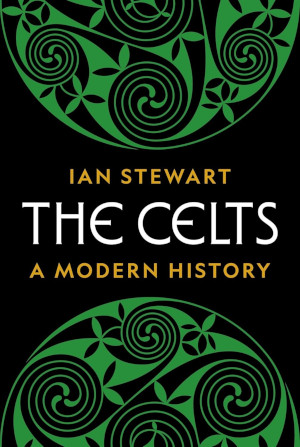
The Celts
By Ian Stewart
I saw a positive review of this book and I'm interested in iron age history in Britain (including the Celts) so bought it. It was worth reading but not quite what I expected.
It's a dense book and Stewart (an academic at the University of Edinburgh) has done an amazing job researching and describing the "modern" history of the Celts: "modern" history starts with the renewed interest they were shown from the Renaissance onwards, and the history is slowly elucidated through the people doing the (metaphorical) digging. It was back then that some started to consider who the earlier, pre-Roman, peoples of Europe really were and the old "origin" myths began to seem increasingly problematic. Having said that, the biblical fantasy about descent from Noah's grandson Gomer persisted for centuries.
What this history does not do is cover much in the way of archaeology, artifacts or genetics. On occasion we get something dug up or old monument looked at, but the book is mainly a history of the many individual researchers and historians, clubs, societies and (increasingly) academics, and their (often slow) search for the truth. This does complement many of my other books in this field.
There are some people we meet here that deserve some more recognition, including J.C. Prichard, an Anglo-Welsh ethnologist and philologist, who made some crucial advances in the 19th Century identifying where the Celtic languages came from. In particular, the fact that they were descended from the ancient Indo-European family (like German, Latin, Greek and even Sanskrit). Much of the science in the book is the science of Philology, where a language is studied and its branching off from other languages, as well as evolution over time, is investigated. Another man worthy of more note is Johan Kaspar Zeuss, a Bavarian scholar, who toiled to shed light on the origin and history of Europe's languages, eventually producing a major work Grammatica Celtica. He proved the Indo-European origin of the Celtic languages and also the mechanism of their split to the various different forms we know and that exist today (e.g. Old Irish/Irish Gaelic, Breton, Welsh etc.). All of the work he did was on the continent using sources of Old Irish hidden away in monasteries for hundreds of years. Finally, it was seen that, although it was a sibling language to Celtic on the Indo-European tree, German was not itself Celtic. This sort of question has confused matters since Caesar himself.
An interesting book that covers the huge French and (particularly) German contribution, as well as the major (and minor) work done in Wales, Scotland, Ireland and England. In the end, however much has been discovered about the ancient Celts, the core element of their presence, today and in the past, is the language. Although much diminished, they are still living languages. This book was hard work sometimes because it is quite slow and detailed, so it will not be for everyone (although that's not it's aim). It will be a worthwhile read for those that want to know how the history has been worked out over the past few centuries however.



